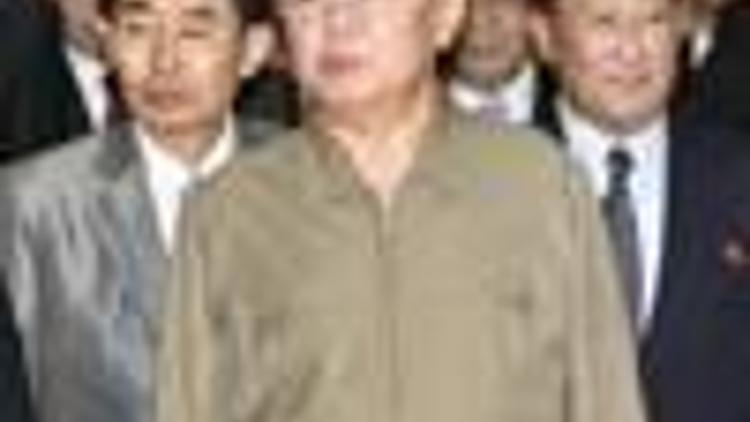N.Korea presents nuclear report, US eases sanctions
Güncelleme Tarihi:

North Korea handed over details of its nuclear programmes Thursday, paving the way for its removal from the US terrorism blacklist amid years of efforts to persuade the North to abandon the atom bomb.
Six months behind schedule, officials delivered the dossier to
The declaration of the secretive nation’s nuclear materials, facilities and programmes was not expected to include a list of its actual atomic weapons, which would come in a later phase of the complex negotiations.
But the provision of the other information -- which will face a rigorous verification programme -- marks a key step in efforts to get the North to give up its nuclear weapons, which it has said it needs to deter a
"The
"There’s more work to be done and we’ve got the process in place to get it done in a verifiable way," he said.
White House spokeswoman Dana Perino said
Quid-pro-quo deals have been at the heart of often difficult negotiations with the North, which has several times gone back on commitments since the talks began, most notably when it tested a nuclear weapon in October 2006.
The six countries in the talks -- North and
China's foreign ministry announced the much-anticipated dossier was turned over by the North Korean ambassador, Choe Jin Su.
The US State Department said
It is not known how many nuclear weapons the North may have produced. The US-based Institute for Science and International Security estimated last year that the country had separated enough plutonium for up to 12 nuclear weapons.
There have been repeated disputes about the extent of the nuclear programmes in the North and whether it will make a full and complete declaration.
US Secretary of State Condoleezza Rice, on a visit to
Rice also said
At the end of the Norths denuclearization process, all nuclear weapons and fissile material are expected to be handed over in return for establishing diplomatic ties with the United States and Japan, as well as a formal peace agreement.
Daniel Pinkston, senior analyst with the International Crisis Group, told AFP in
He said any eventual disarmament would take "years and not months."
The North’s declaration was reportedly to announce a 37-kilogramme (81-pound) plutonium stockpile -- less than the 40 to 50 kilos that US intelligence officials have estimated it has.
The
Photo: AP

